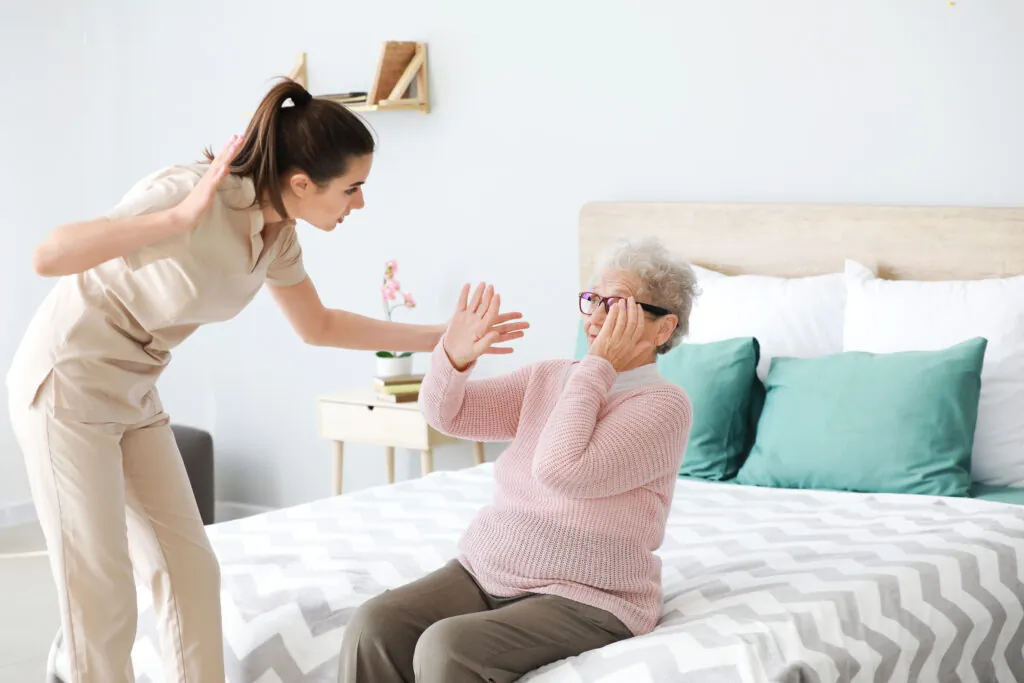How Can You Prove Systemic Neglect in a Florida Nursing Home Abuse Case?
Nursing home neglect is an alarming issue in Florida, where a significant portion of the elderly population relies on long-term care facilities for medical support, daily assistance, and overall well-being. Unfortunately, many nursing homes fall short of providing the standard of care required by law, leading to cases of systemic neglect, mistreatment, and even abuse.
Families who entrust the care of their loved ones to these facilities often face distressing situations where their relatives suffer from malnutrition, medical negligence, emotional neglect, and physical harm. Understanding the legal rights of nursing home residents, recognizing signs of abuse, and knowing the steps to take when neglect occurs are critical in ensuring that justice is served.
This comprehensive guide will explore the key aspects of Florida nursing home neglect, including the legal framework that protects residents, the process of reporting abuse, and how families can take legal action against negligent facilities.
What is Nursing Home Neglect?
Nursing home neglect refers to the failure of a long-term care facility to provide the necessary care and support that residents need. This can include withholding essential medical treatment, failing to assist with hygiene and basic needs, and disregarding the emotional well-being of residents. Unlike overt physical abuse, neglect often occurs over time, making it more difficult to detect until severe harm has already been inflicted.
Different Types of Nursing Home Neglect
There are several ways in which neglect can manifest in a long-term care setting:
- Medical Neglect: Occurs when a nursing home fails to administer medication correctly, neglects to treat infections, or does not provide timely medical interventions.
- Emotional and Social Neglect: Involves isolating residents, ignoring their emotional needs, or failing to provide opportunities for social interaction.
- Hygiene Neglect: Happens when staff do not assist residents with bathing, changing clothes, or maintaining personal cleanliness.
- Basic Needs Neglect: Involves depriving residents of adequate nutrition, clean drinking water, or a comfortable living environment.
- Supervision Neglect: Occurs when residents are left unattended, increasing the risk of falls, wandering off, or becoming victims of accidents.
Neglect can be just as damaging as direct abuse, leading to physical deterioration, emotional suffering, and a diminished quality of life for nursing home residents.
Common Signs of Elder Neglect in Florida Nursing Homes
Nursing home residents may not always be able to report neglect themselves due to medical conditions, fear of retaliation, or cognitive impairments such as dementia. For this reason, family members and loved ones must be aware of the warning signs of neglect.
Some of the most common indicators include:
- Bedsores (Pressure Ulcers): These painful wounds develop when a resident remains in the same position for too long due to a lack of mobility assistance.
- Unexplained Weight Loss: Sudden weight loss may indicate malnutrition or dehydration caused by improper feeding or inadequate dietary support.
- Poor Hygiene: Signs such as unwashed hair, dirty clothing, foul odors, and unchanged bedding often signal neglect.
- Frequent Infections or Illnesses: Recurring infections may result from unsanitary conditions, medical neglect, or a compromised immune system due to malnutrition.
- Unexplained Bruises, Cuts, or Falls: Lack of supervision can lead to residents experiencing injuries that should have been preventable.
- Depression, Anxiety, or Social Withdrawal: Residents suffering from emotional neglect may become unresponsive, fearful, or withdrawn from social interactions.
If any of these signs are present, it is crucial to investigate further and take immediate action to protect the well-being of the resident.
How Understaffing Contributes to Systemic Neglect in Nursing Homes
One of the leading causes of neglect in Florida nursing homes is chronic understaffing. When a facility does not employ enough caregivers to meet the needs of its residents, neglect becomes unavoidable.
Effects of Understaffing on Nursing Home Care
- Delayed Medical Attention: Overworked staff may not have the time to properly monitor residents’ health conditions, leading to missed medical interventions.
- Neglect of Basic Hygiene: Caregivers who are stretched too thin may struggle to bathe, dress, or assist residents with toileting regularly.
- Higher Risk of Falls and Injuries: A lack of supervision increases the likelihood of falls, especially for residents who require mobility assistance.
- Medication Errors: Overburdened staff may administer the wrong medication, give incorrect dosages, or forget to provide prescribed treatments.
- Increased Emotional and Social Isolation: With fewer staff members available, residents may be left alone for long periods without companionship or social stimulation.
Many nursing home neglect lawsuits cite understaffing as a primary factor contributing to the harm suffered by residents. Florida law requires that nursing homes maintain a proper staff-to-resident ratio, but many facilities fail to comply with these regulations.
Florida Laws Protecting Nursing Home Residents
Florida has strict regulations designed to protect elderly residents from abuse and neglect. These laws establish the legal responsibilities of nursing homes, define resident rights, and outline the penalties for failing to meet proper care standards.
Key Legal Protections for Nursing Home Residents
- The Nursing Home Reform Act: A federal law that mandates minimum care standards for all nursing home facilities.
- Florida Statutes, Chapter 400: Governs nursing home regulations in the state, including the rights of residents and the duty of care required from facilities.
- Florida Department of Elder Affairs: The state agency responsible for investigating complaints and enforcing nursing home care standards.
When nursing homes fail to meet these legal requirements, they can be held accountable through civil lawsuits, fines, and license revocations.
How to Report Nursing Home Neglect in Florida
If you suspect a loved one is being neglected, reporting the abuse is a critical first step toward stopping further harm. There are several ways to file a complaint:
- Contact the Florida Department of Elder Affairs at 1-800-96-ELDER.
- File a complaint with Adult Protective Services (APS), which investigates cases of elder abuse.
- Consult a Florida elder law attorney to explore legal action against the facility.
It is important to document all evidence of neglect when filing a complaint, including photographs, medical records, and witness statements.
Filing a Nursing Home Neglect Lawsuit in Florida
If a nursing home has violated its duty of care, residents and their families have the right to file a nursing home neglect lawsuit.
Steps to Filing a Lawsuit
- Consult an elder law attorney with experience in nursing home abuse cases.
- Gather evidence such as medical records, photographs, and witness testimony.
- File a formal complaint against the nursing home.
- Negotiate a settlement or take the case to court to seek financial compensation.
Compensation for Victims of Nursing Home Neglect
Victims and their families may receive compensation for:
- Medical expenses resulting from neglect-related injuries.
- Pain and suffering caused by emotional and physical harm.
- Wrongful death damages if neglect leads to a resident’s death.
How to Find a Nursing Home Abuse Attorney in Florida
Choosing the right attorney is essential when pursuing a nursing home neglect lawsuit. Families should look for lawyers who specialize in elder law and have a strong track record of winning cases.
When searching for an attorney, consider factors such as:
- Experience handling nursing home neglect cases.
- Positive client testimonials and reviews.
- A willingness to pursue the case aggressively.
Frequently Asked Questions About Nursing Home Neglect in Florida
Can I sue a nursing home for emotional neglect?
Yes, emotional neglect can be just as damaging as physical neglect. If a nursing home resident suffers from severe emotional distress due to isolation, lack of companionship, verbal mistreatment, or failure to address their emotional needs, families may have grounds for legal action. Emotional neglect can lead to depression, anxiety, and cognitive decline, which can impact a resident’s overall health and well-being.
What is the time limit to file a nursing home neglect lawsuit in Florida?
In Florida, the statute of limitations for nursing home neglect lawsuits is typically two years from the date the neglect occurred or was discovered. However, certain circumstances, such as cases involving fraudulent concealment or delayed discovery of harm, may extend the filing deadline. It is crucial to consult with an elder law attorney as soon as possible to ensure compliance with legal time limits.
What should I do if I suspect my loved one is being neglected in a nursing home?
If you suspect neglect, document any signs of abuse, including physical injuries, poor hygiene, or sudden behavioral changes. Speak with your loved one privately and ask about their treatment. Report your concerns to the facility’s administration and file a complaint with the Florida Department of Elder Affairs or Adult Protective Services. If the neglect persists or is severe, contact a nursing home abuse attorney to explore legal options.
How can I prove that a nursing home is responsible for neglect?
Proving nursing home neglect requires collecting substantial evidence. Medical records can demonstrate a decline in health due to inadequate care. Photographs of injuries, bedsores, poor living conditions, or unclean facilities can serve as visual proof. Witness statements from other residents, caregivers, or visitors can support claims of neglect. Legal teams may also request facility records to examine staffing levels, incident reports, and past violations.
Can understaffing be used as evidence of systemic neglect in a lawsuit?
Yes, understaffing is one of the leading causes of systemic neglect and can be a strong argument in a legal case. If a nursing home lacks adequate caregivers to provide proper medical attention, hygiene assistance, and supervision, residents are more likely to suffer from neglect. Records of staff shortages, employee testimonies, and facility inspection reports can be used as evidence to prove that understaffing contributed to the harm experienced by residents.
Contact Rafferty Domnick Cunningham & Yaffa Today
Nursing home neglect is a serious issue that demands immediate attention. If you suspect that a loved one has been a victim of neglect, take action by reporting the abuse, gathering evidence, and consulting a qualified attorney.
If you need legal assistance, contact Rafferty Domnick Cunningham & Yaffa today to discuss your case and ensure justice for your loved one.






